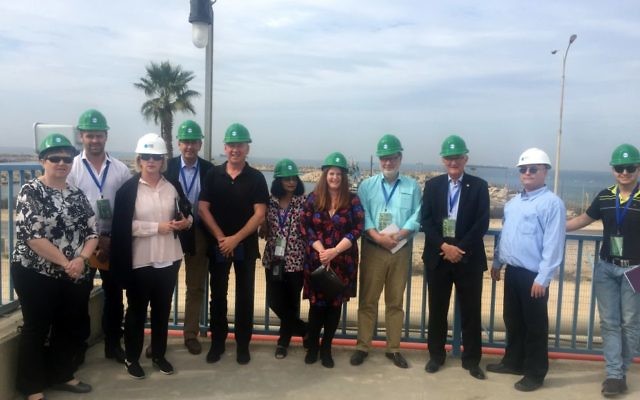Agri-food mission accomplished
Australia-Israel Chamber of Commerce’s inaugural Australian agri-food mission to Israel has born fruit, with delegation members "blown away" by what they saw.

VISITING a company that makes 100 per cent compostable packaging, a factory where chicken meat is engineered from just a few cells, one of the most advanced water recycling plants in the world, and high-tech farms using drones and equipment operated by IoT (the Internet of Things) .
These were just some of the highlights from the Australia-Israel Chamber of Commerce’s (AICC) inaugural six-day Australian agri-food mission to Israel, which concluded in early December.
The delegation was made up of representatives from government and industry, the CSIRO, the farming and banking sectors and universities, and was led by Food Innovation Australia Limited (FIAL) chair Peter Shutz.
AICC CEO Michelle Blum, who accompanied the delegation, told The AJN, “People were quite blown away by what they saw of Israel’s agri-tech ecosystem, the intellectual capital that was on display by those in the industry, and their global, forward-thinking attitude.
“Israel is a global leader in this field, with around 300 research institutes just associated with agriculture.
“There’s no doubt that Australian science is also very strong – and the Israelis we met were impressed by that – but the difference in Israel is the effective translation of that science into commercial outcomes.
“Another thing that delegation members were amazed by was how Israelis are happy to share their knowledge with each other in the industry, which I think leads to much stronger, richer business outcomes,” Blum said.
Shutz told The AJN Australia ranks 29th and 30th in the OECD in terms of research commercialisation and collaboration (respectively), while Israel consistently ranks in the top two or three.
“These are key areas for us to improve in and a major focus of FIAL’s strategy, so we were really keen to learn in Israel how this was developed [so successfully],” Shutz said.
“The areas I believe Australia and Israel can share learning, and potentially jointly develop new -technologies, are in the fields of soil management in arid environments, the expansion of robotics and the use of smart data in agricultural supply chains.”
The Department of Industry Innovation and Science’s manager of food industry policy Matt Crawshaw said he has a “deep appreciation” for the role Israel’s government plays in stimulating venture capital investment, and how Israeli businesses, universities and research organisations work collaboratively on commercial challenges.
“An area Israeli agri-food businesses may be able to learn from their Australian counterparts is knowledge and experience in successfully executing growth strategies in Asian markets,” Crawshaw said.
SHANE DESIATNIK

comments